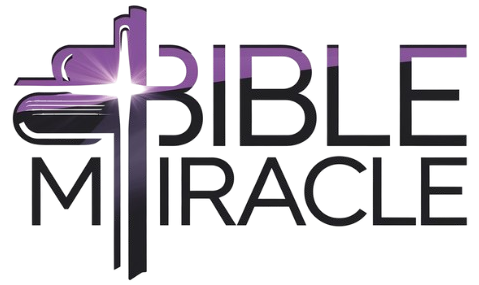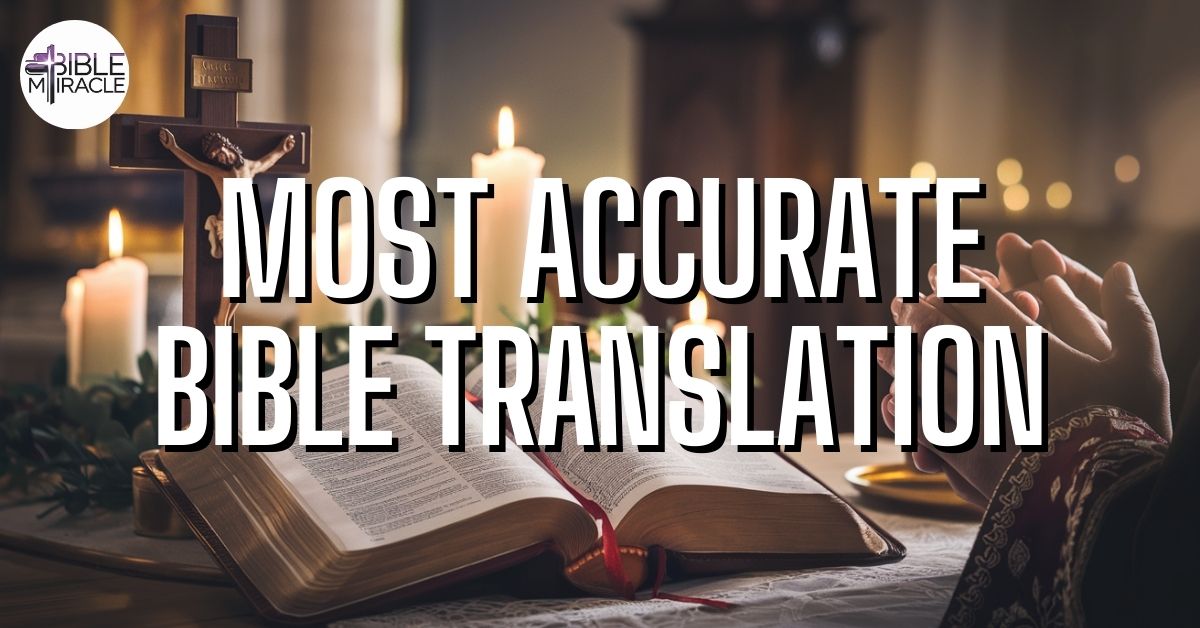Finding the Most Accurate Bible Translation matters deeply for anyone seeking to connect with God’s true message. The right translation offers clear and reliable guidance that brings comfort, hope, and spiritual encouragement. Although the Bible doesn’t specify which version is the most accurate, it provides wisdom that helps us appreciate the importance of faithfully understanding scripture’s meaning.
This article aims to share thoughtful insights about Bible translations and how they preserve the heart of God’s Word. You’ll also find meaningful verses that highlight the power of scripture to inspire transformation and strengthen your faith. Let these words encourage you as you seek a deeper, more authentic connection with God’s truth.
The Significance of The Bible
The Bible holds a special place in the hearts of millions because it is much more than just a book—it is a source of divine guidance, comfort, and truth. It reveals God’s character and His plan for humanity, offering wisdom that has stood the test of time. Through its stories, teachings, and promises, the Bible helps us understand life’s purpose and provides strength during difficult moments.
Its significance goes beyond history or literature; the Bible speaks directly to our souls, encouraging us to live with faith, hope, and love. Whether seeking answers, peace, or direction, this sacred text remains a powerful light in the darkness. Embracing the Bible’s message can transform lives by drawing us closer to God’s eternal truth and grace.
Find Your Blessings: 40+ Psalms Verses
Original Language of The Bible
The Bible was originally written in three ancient languages: Hebrew, Aramaic, and Greek. Hebrew was the primary language for most of the Old Testament, while parts of it were written in Aramaic. The New Testament was mainly written in Greek, the common language of the time.
Understanding these original languages is important because they carry the precise meanings and nuances that can sometimes be lost or changed in translation. Knowing the original languages helps scholars and translators preserve the true message of the scriptures.
Each word and phrase holds deep significance, and exploring these languages allows us to connect more closely with the intent and spirit of the Bible. This is why accurate translations aim to reflect the original text as faithfully as possible, so readers today can experience the Bible’s authentic wisdom and guidance.
Find Your Blessings: 40+ Destiny Helpers In The Bible
Importance of Bible Translation
Bible translation plays a vital role in making God’s Word accessible to people all around the world. Since most readers today don’t understand the Bible’s original languages, translations help bridge that gap, allowing everyone to hear its message clearly.
A good translation preserves the meaning and spirit of the original text, so readers can experience the same encouragement, wisdom, and hope that the Bible has offered for centuries. The importance of Bible translation goes beyond just words on a page—it shapes how people connect with their faith and understand God’s teachings.
Accurate translations ensure that the core truths remain intact, helping believers grow spiritually and live according to biblical principles. Through these translations, the Bible continues to inspire, guide, and transform lives across cultures and generations.
Find Your Blessings: 40+ Bible Verses About Welcoming Visitors In Church
10 Most Accurate Bible Translations
- New American Standard Bible (NASB)
Renowned for its strict adherence to a word-for-word translation philosophy, the NASB is often considered the most literal English translation available. - English Standard Version (ESV)
Combining accuracy with readability, the ESV is a popular choice for both personal study and public reading. - King James Version (KJV)
Known for its majestic and poetic language, the KJV has been a cornerstone of English-speaking Christianity for centuries. - New International Version (NIV)
Balancing accuracy with readability, the NIV is widely used for both personal reading and academic study. - New King James Version (NKJV)
An updated version of the KJV, the NKJV maintains the traditional style while improving readability. - Christian Standard Bible (CSB)
A modern translation that seeks optimal equivalence, balancing formal and functional translation philosophies. - New Revised Standard Version (NRSV)
Known for its scholarly precision and inclusivity in language, providing an accurate translation for study and liturgical use. - Revised Standard Version (RSV)
A mid-20th-century revision of the American Standard Version, the RSV is respected for its balance between accuracy and readability. - Holman Christian Standard Bible (HCSB)
Developed by a team of scholars from 17 denominations, the HCSB aims for optimal equivalence in translation. - Amplified Bible (AMP)
Expands on the original text to provide deeper understanding, making it useful for study and meditation.
Find Your Blessings: 40+ Bible Verses About Free Will
1️⃣ New American Standard Bible (NASB)
Publisher: The Lockman Foundation
First Release Year: 1971
The NASB is famous for its strict word-for-word translation approach, staying as close as possible to the original Hebrew, Aramaic, and Greek texts. It’s highly respected among scholars, pastors, and serious Bible students who want precision in studying God’s Word.
Many readers appreciate its faithfulness, even if the language sometimes feels formal or less conversational. This translation is excellent for deep Bible study, offering clarity and confidence that the meaning hasn’t been softened or overly paraphrased.
2️⃣ English Standard Version (ESV)
Publisher: Crossway
First Release Year: 2001
The ESV aims to balance accuracy with literary beauty, combining precise translation with smooth readability. It follows a formal equivalence style, meaning it seeks to stay true to the original wording while ensuring the English sounds natural.
Believers worldwide love the ESV for both personal reading and public worship. It’s a favorite in many churches, offering clear, trustworthy scripture that feels both scholarly and devotional.
3️⃣ King James Version (KJV)
Publisher: Church of England
First Release Year: 1611
The KJV is one of the most beloved and historic Bible translations, known for its majestic, poetic language. For centuries, it shaped English-speaking Christianity and remains deeply respected for its beauty and influence.
Though its old English style can be challenging for modern readers, many still treasure it for devotional use and memorization. It’s seen as a timeless connection to centuries of faith and tradition.
4️⃣ New International Version (NIV)
Publisher: Biblica (formerly International Bible Society)
First Release Year: 1978
The NIV focuses on dynamic equivalence, meaning it tries to convey the original meaning in natural, everyday English. It’s one of the most widely read translations worldwide, popular in both churches and homes.
Many readers love the NIV for its clarity, smooth reading flow, and balance between accuracy and accessibility. It’s often recommended for new believers and anyone wanting a clear, modern Bible experience.
5️⃣ New King James Version (NKJV)
Publisher: Thomas Nelson
First Release Year: 1982
The NKJV updates the classic KJV, keeping its beauty and faithfulness while using modern language for better understanding. It preserves the poetic rhythm but replaces archaic terms like “thee” and “thou.”
Many readers appreciate how the NKJV maintains the KJV’s spirit while making it easier for today’s audience to connect with scripture. It’s widely used in both personal study and church settings.
6️⃣ Christian Standard Bible (CSB)
Publisher: Holman Bible Publishers
First Release Year: 2017
The CSB aims for “optimal equivalence,” balancing word-for-word and thought-for-thought translation to offer accuracy and readability. It’s crafted for both scholars and everyday readers alike.
Believers appreciate how the CSB brings clarity without losing the depth of the original text. It’s often praised for being highly accessible, making it a strong choice for both study and devotional reading.
7️⃣ New Revised Standard Version (NRSV)
Publisher: National Council of Churches
First Release Year: 1989
The NRSV is known for its scholarly accuracy and commitment to inclusive language, making it popular in academic, liturgical, and ecumenical settings. It’s widely used across denominations and trusted by theologians.
Many value the NRSV for its careful attention to the original texts while being sensitive to modern expressions. It’s a favorite for serious Bible study and interfaith dialogue.
8️⃣ Revised Standard Version (RSV)
Publisher: National Council of Churches
First Release Year: 1952
The RSV is a respected update of the American Standard Version, aiming to make scripture more readable while keeping faithful to original meanings. It became a standard for many churches and scholars in the mid-20th century.
Readers appreciate the RSV for its balance between traditional language and modern clarity. It holds a significant place in the history of English Bible translations and continues to be valued for study and worship.
9️⃣ Holman Christian Standard Bible (HCSB)
Publisher: Holman Bible Publishers
First Release Year: 2004
The HCSB offers a fresh, modern translation aimed at providing both accuracy and clarity. It uses “optimal equivalence” to balance word-for-word precision with smooth readability, making it suitable for both study and devotion.
Many believers appreciate how the HCSB makes scripture approachable without sacrificing depth. It has gained popularity in churches, small groups, and personal reading for its clear and trustworthy presentation.
🔟 Amplified Bible (AMP)
Publisher: The Lockman Foundation and Zondervan
First Release Year: 1965
The Amplified Bible stands out because it expands key words and phrases to bring out fuller meanings from the original texts. By including synonyms and shades of meaning in brackets, it gives readers deeper insight.
People love the AMP for how it helps unpack scripture’s richness, making it ideal for study, meditation, and gaining a broader understanding of God’s Word. It’s especially helpful for those wanting to explore deeper biblical nuances.
Find Your Blessings: What Are The 12 Sins In The Bible?
Conclusion
The Most Accurate Bible Translations help believers connect deeply with God’s Word, offering clarity, faithfulness, and spiritual nourishment. Whether you seek wisdom, comfort, or guidance, these translations open the door to life-changing truths. Each version brings its own strengths, letting readers choose what fits their heart and understanding best.
By exploring these translations, you gain not just knowledge but a deeper relationship with scripture’s timeless message. They remind us that God’s Word remains alive and powerful, shaping lives and offering hope across every generation. Keep seeking, reading, and letting these words transform your journey.
FAQ’s
What is the most accurate Bible translation overall?
Many scholars consider the New American Standard Bible (NASB) the most accurate word-for-word English translation, known for its precision and faithfulness to original texts.
Which Bible translation is easiest to read?
The New Living Translation (NLT) is often praised for its smooth, conversational style, making it very approachable for both new and seasoned readers.
Why are there so many different Bible translations?
Different translations serve varying needs — some focus on word-for-word accuracy, others on readability or capturing the meaning behind the text. This variety helps reach diverse audiences.
Does the King James Version (KJV) remain reliable today?
Yes, the KJV is still cherished for its historical beauty and depth, though its old English may be challenging; many readers use modern translations alongside it for clarity.
How can I choose the right Bible translation for me?
Think about what you value most — do you want precise accuracy, easy readability, or rich tradition? Exploring versions like the NASB, NIV, or ESV can help you find the perfect fit for your spiritual journey.
Want to discover more Bible-based insights? Check out our collection of verses at BibleMiracle.com


